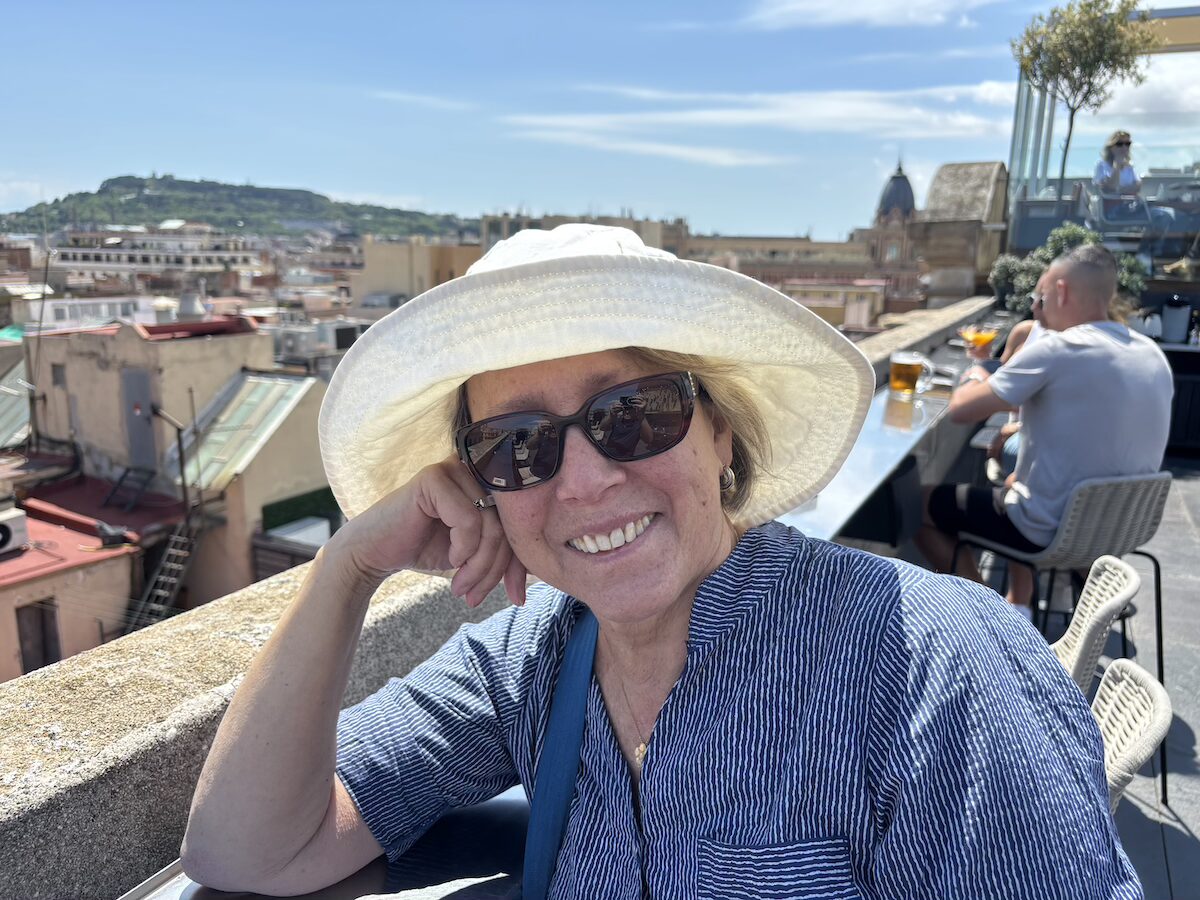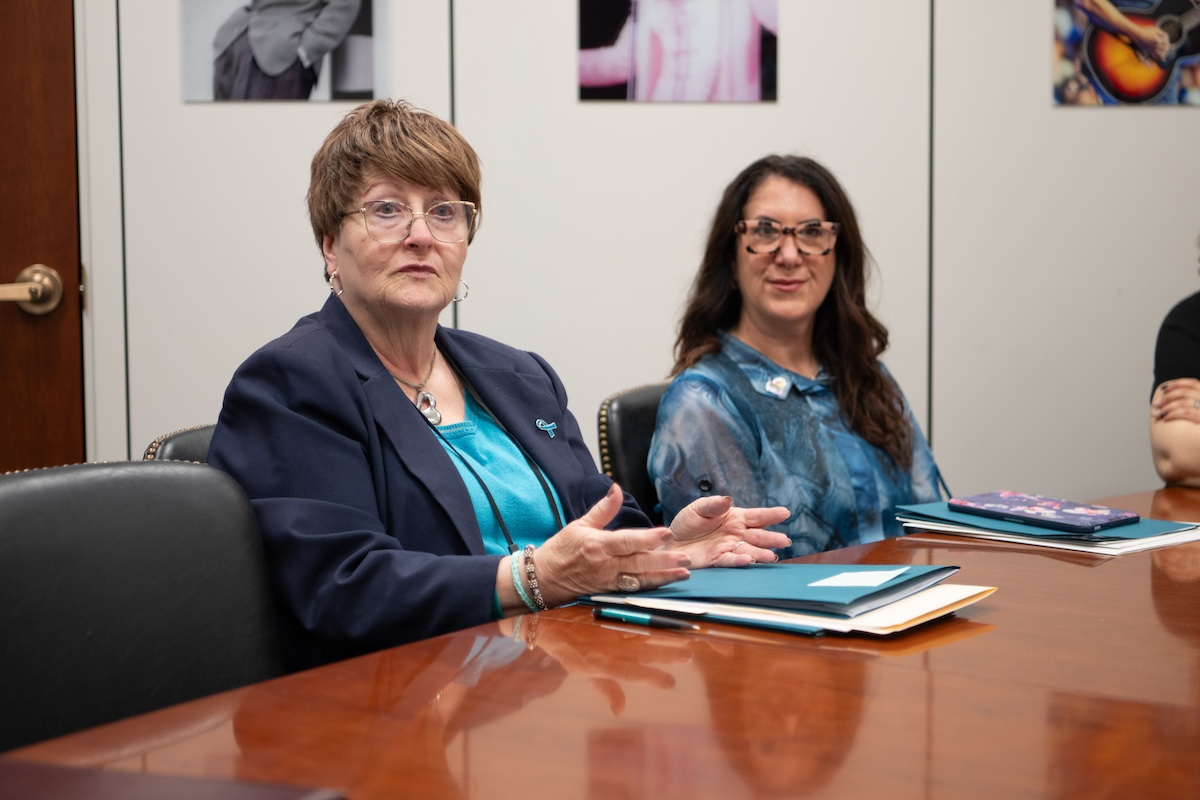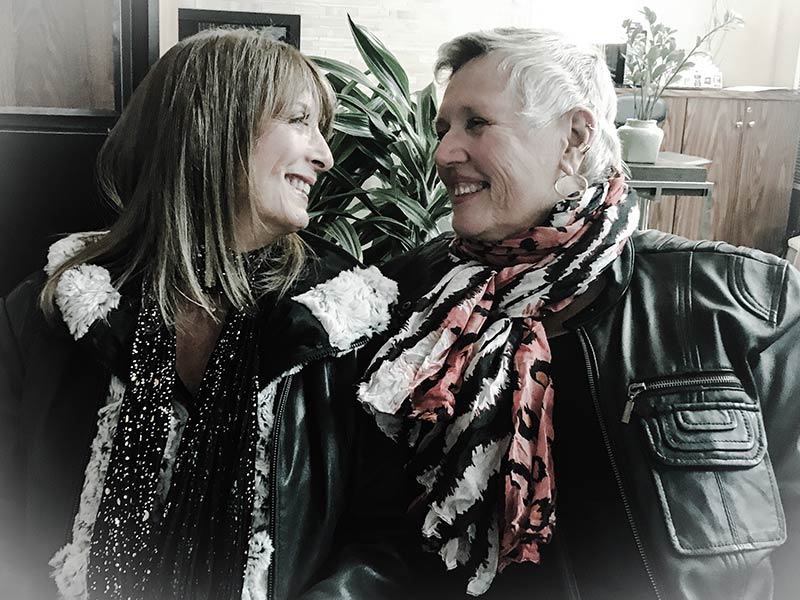
Janice Murphy is a woman with many passions: sharing her love of the Great American Songbook, living life to the fullest — and making sure healthcare providers know that ovarian cancer may pose a greater risk for older lesbian women.
Janice was 62 years old and newly married to a woman she had been committed to for 23 years (gay marriage had only became legal the year before). But within a few months of their wedding, she began feeling like something was off.
“I said to my wife, ‘something’s wrong. I’m not so out of shape that I should be out of breath when walking up an incline.’”
Janice saw her primary care doctor’s colleague who said, “I don’t want to alarm you, but sometimes women your age who present with this might have ovarian or some kind of gynecological cancer.” He sent her for a pelvic ultrasound. Within a week, she was scheduled for surgery.
An epidemic for older gay women
This is what her primary care doctor, a gay woman herself and the one who broke the news to Janice, said about ovarian cancer. While Janice doesn’t have statistics to back up the sense that this disease is a silent killer of women in her community, she sees anecdotal evidence among her own friends. And when you look at the risk factors of the disease, it makes sense.
It is known that the use of oral contraceptives decreases the risk of ovarian cancer. Women who have taken birth control pills for five or more years have about a 50 percent lower risk of developing the disease than those who have not.
“I mean, I’m a lesbian,” Janice said. “I don’t need to take birth control.”
Furthermore, pregnancy and breastfeeding are linked with a reduced risk of ovarian cancer because it means less times that a woman may have ovulated throughout her life. And while it may be more common today for lesbians to become pregnant, it certainly wasn’t the case 30 or 40 years ago.
Being of service to the ovarian cancer community
Janice is committed to raising awareness not just about the disease itself, but about the extra risk of ovarian cancer within the gay community. She volunteers with Survivors Teaching Students, OCRA’s program that brings survivors into medical and nursing schools to share their stories with rising healthcare professionals.
“If I can get into the mind of a medical student or nurse,” Janice said, “that 20 years into your practice, if somebody presents with some nebulous symptoms and their background is something like mine, or they learn their patient is a gay person, maybe they’ll remember a little something and that will send them down the right track of diagnostically looking for that.”
She is also getting trained as a Woman to Woman mentor, with the hope that she can be of support to others in the LGBT community who are newly diagnosed.
“A blessing as much as a curse”
While ovarian cancer is a major part of Janice’s life, she will be the first to tell you that it does not define her. That being said, it has certainly shaped her outlook.
“I’m not saying this is a diagnosis anyone would want to get,” she said, “but it makes you sort of laser focus on what is important in life. It makes you reassess and say, ‘Where do I want to be? Who do I want to be with? What do I want to be doing?’”
Janice worked her entire career in corporate America, primarily in healthcare sales and marketing. But because she is an innately curious person who “likes to be intellectually stimulated,” she went back to school mid-career and got her law degree. And even though she never practiced as an attorney, that degree proved incredibly useful in her role.
Yet even before her diagnosis, she was getting to the point where she was considering retirement. Her friends used to joke with her wife, “Free mama! Let mama retire!”
Janice said her diagnosed “launched her” in a way. “I’m mortal, you know? My life is not guaranteed, so why don’t I try to live my best life while I’m here.”
With that philosophy, she began to let the extraneous things go, “weed her garden” as a dear friend put it. And it freed her up to explore new passions. Like volunteering with her town’s senior center. And hosting a national bi-monthly radio show featuring the Great American Songbook, Broadway and cabaret.
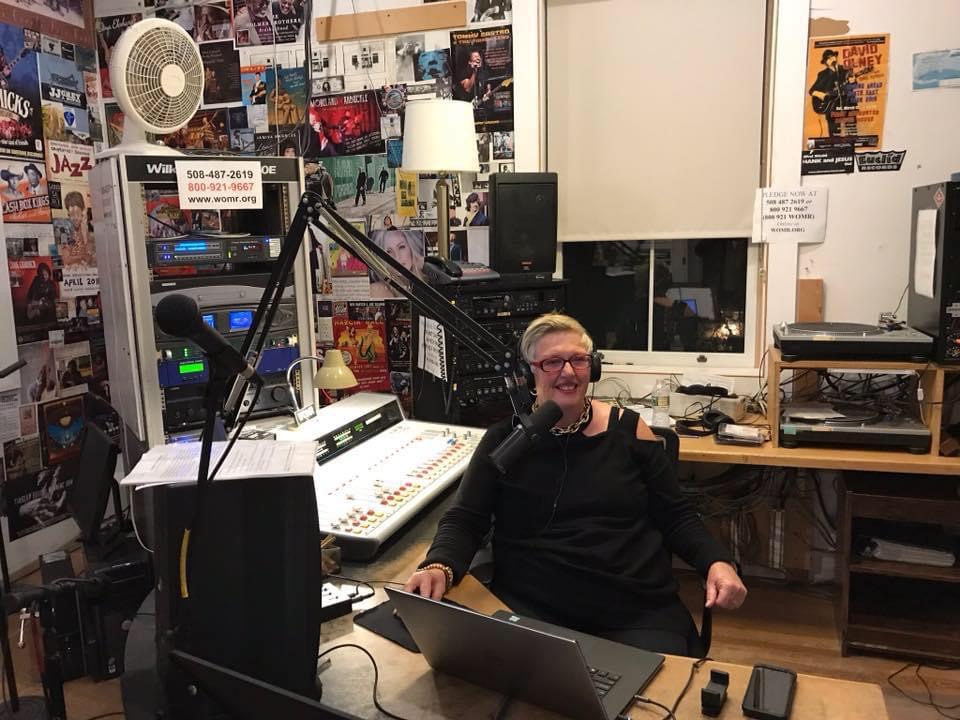
A song of hope
Janice’s show is called This Time Around on WOMR, and you can find her on the second and fourth Saturday night of every month from 9pm to midnight. Though her favorite composer is Stephen Sondheim, she enjoys discovering new artists and providing a platform for their work. As she spins the tunes and reflects on the long list of artists she’s seen perform in person, she thinks about the advice she’d give to others in her shoes.
“Try to really stay positive,” she said. “You don’t know what the future holds.”
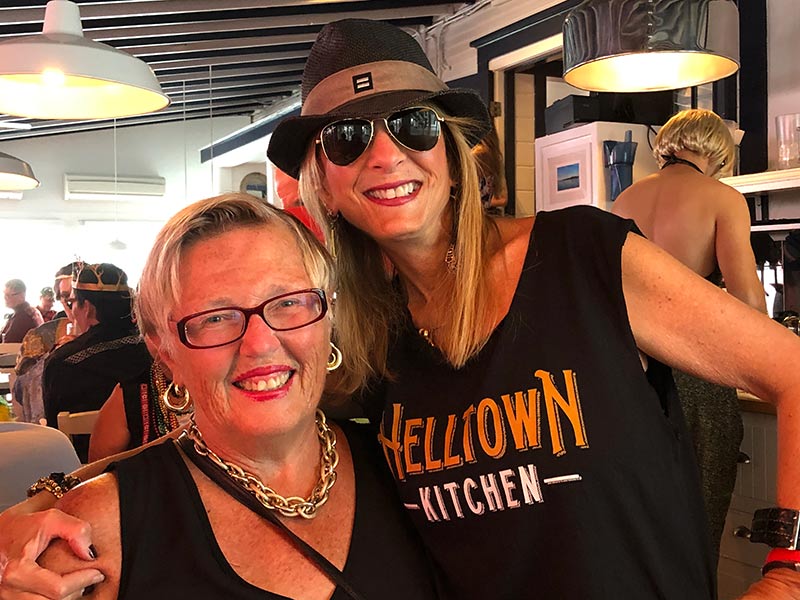
She also recommends staying away from the Internet. It can be a fabulous resource, but it can also be a major source of doom and gloom. And mitigating stress, she says, is incredibly important. Janice would encourage anyone to “grab for the little joys you can have in your life and appreciate that which is good.”
Does Janice, a lover of stories set to music, have a theme song for her own life? Of course she does: Happy Days are Here Again.
“It’s a song of hope,” she said. “And it’s always sung by two women who are belting their hearts out. It just resonates.”
